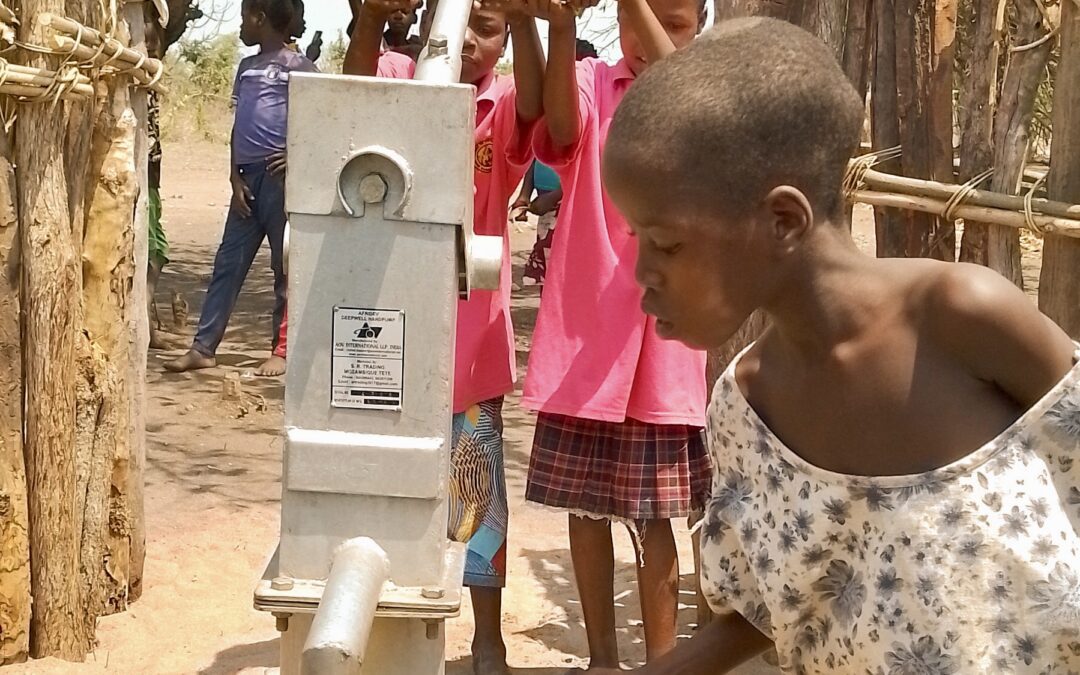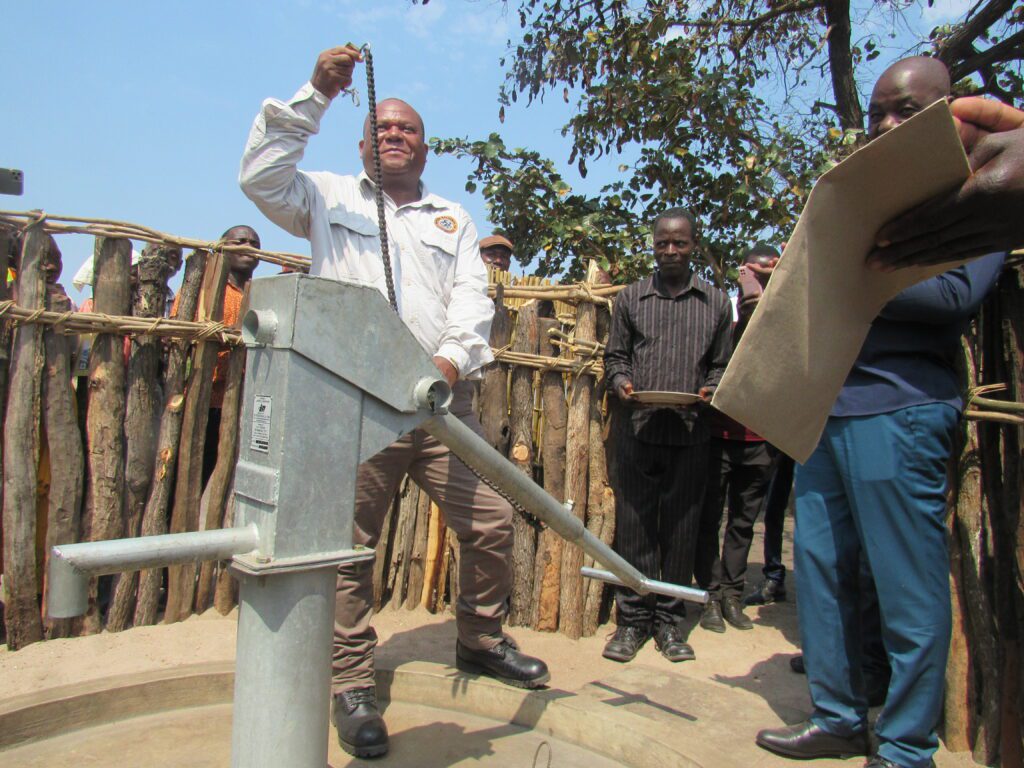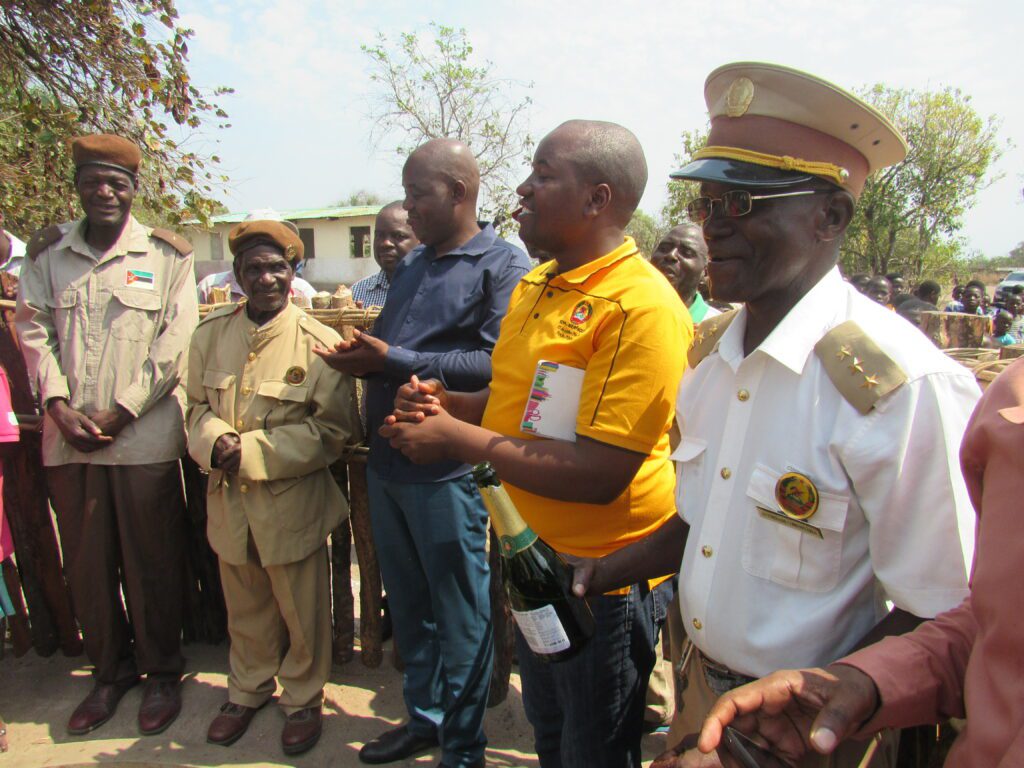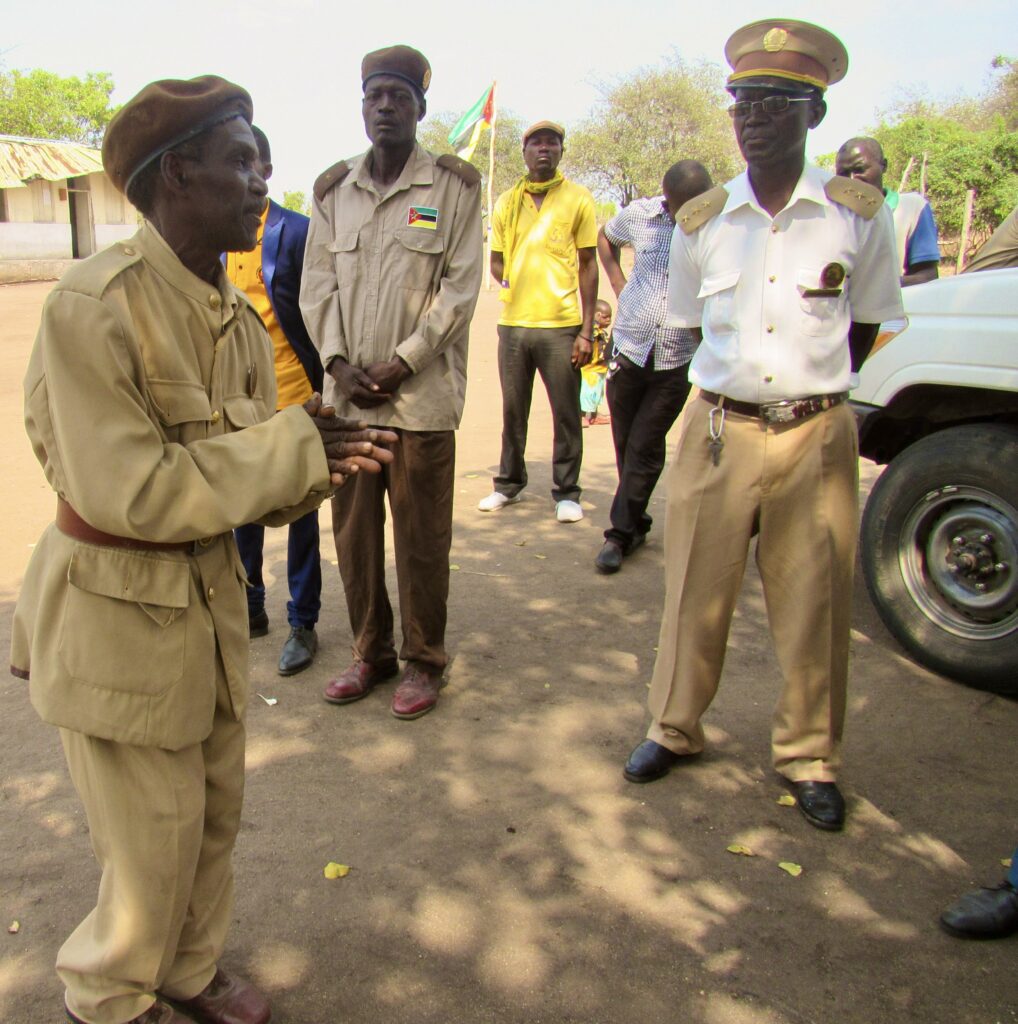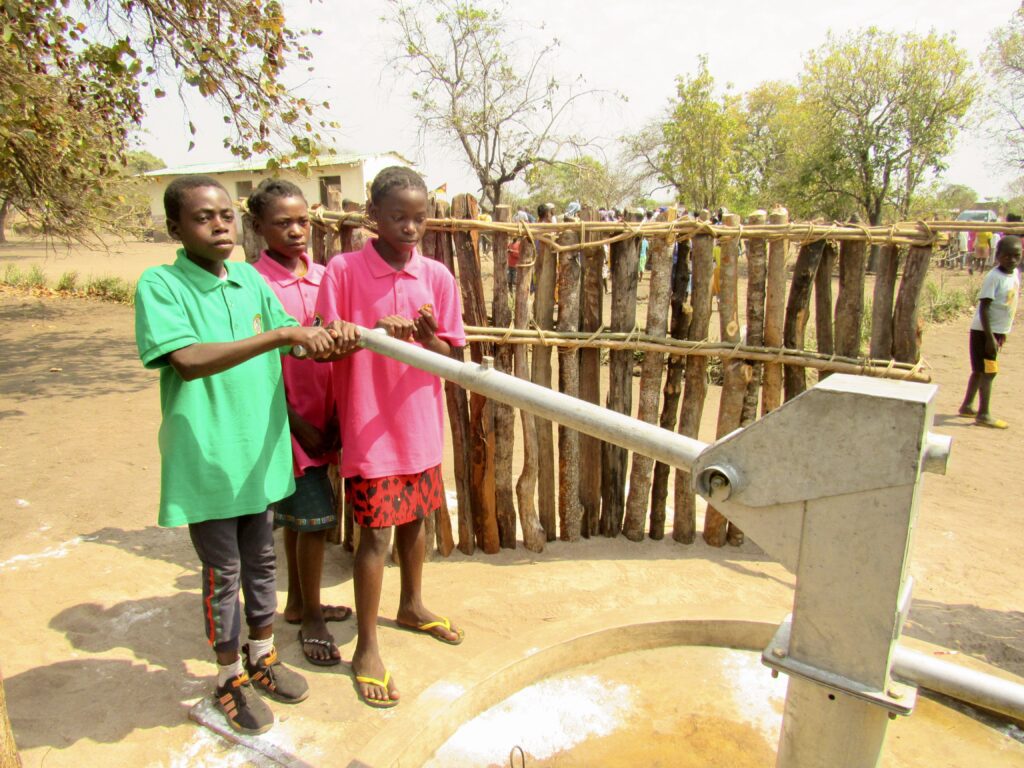Several communities in the Maringué District near Gorongosa National Park now enjoy clean water, thanks to three new boreholes built to improve water, sanitation and hygiene facilities in schools and health centers.
The project, partially funded by a USD50,000 grant from Bayer, benefits the people of Djodjo, Thoe, and Kunkue I. Bayer is a German multinational pharmaceutical and biotechnology company, one of the largest pharmaceutical companies in the world.
The initiative aligns with a pillar of the Gorongosa National Park Strategic Plan which aims to increase quality and access to Water, Sanitation, and Hygiene (WASH) facilities in schools, health centers, and communities, particularly for women and children in the Park’s Sustainable Development Zone.
Mobile brigades allow health professionals to serve the general population, but mainly pregnant women and children. With access to drinking water less than 10 minutes from their homes, local families will be able to improve their personal and collective hygiene, keep their schools and homes clean, and better prepare meals to reduce diarrheal diseases.
Led by the Health Sector of the Park’s Human Development and Livelihoods Department and the Maringué District government, the project partners’ goal is to improve the living conditions of local communities so they can work side-by-side to promote environmental conservation.
For this project, the two groups identified primary schools in communities with a low availability of quality water. Adding water boreholes increases water availability and will help improve school attendance, increase learning and improve life skills education in Djodjo, Patrice Lumumba, and Kunkué primary schools.
Two local water and sanitation committees were also created and trained to serve as management bodies for each beneficiary community. Their role will be to seek ways of improving the quality and satisfying the demand for water on a daily basis.
Water boreholes, with narrower and deeper cavities, surpass traditional wells and deliver a more space-efficient and higher-quality water source, sealed from surface contamination. As a consistent and reliable water supply, especially in drought conditions, water boreholes are unlike wells that risk aquifer depletion due to shallower depths.
